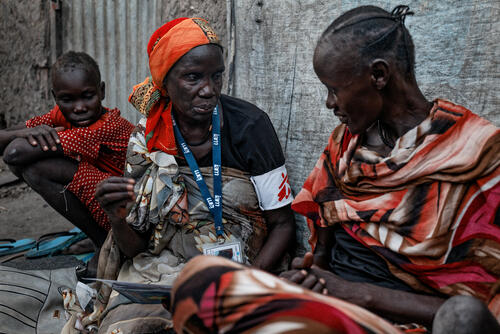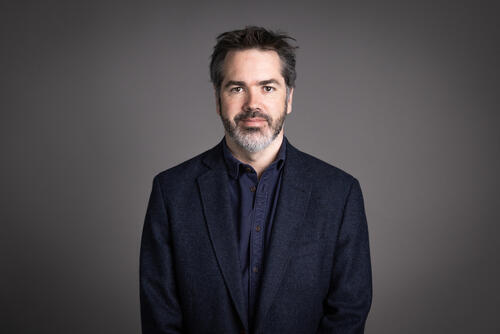International Activity Report 2021 > Foreword
Since the creation of Médecins Sans Frontières (MSF) 50 years ago, our goal has been to alleviate people’s suffering and to provide medical care to those who need it most. 2021 was no exception. Despite the many challenges presented by the COVID-19 pandemic, our teams carried out their work across more than 70 countries, in some of the hardest-to-reach regions of the world.
While COVID-19 absorbed the attention and resources of many high-income countries, its direct and indirect effects were felt in places where health systems were already weak. We used our expertise in tackling disease epidemics to support countries struggling to deal with COVID-19, as well as other ongoing health crises.
The pandemic also highlighted the outrageous inequity over access to lifesaving vaccines. While high-income countries took strides towards combating the virus by buying up billions of doses and rolling out mass vaccination campaigns, a fraction of these vaccines went to low-income countries, leaving many people unprotected, including frontline health workers, the elderly and the clinically vulnerable. In the face of this unacceptable situation, MSF campaigned throughout the year for vaccine equity and an end to patents and monopolies on COVID-19 vaccines, treatments, tests and tools
At the same time, our teams responded to outbreaks of other diseases, responded to natural disasters, carried out surgery in conflict zones, treated children for malnutrition, helped women give birth safely, and provided medical care and humanitarian aid to people fleeing violence, insecurity and hardship.
Our teams in several places around the world experienced incidents in which their safety was threatened or harmed while trying to deliver much-needed medical and humanitarian aid. In June last year, MSF was hit by tragedy when three of our colleagues were brutally murdered in Ethiopia. María Hernández Matas, Tedros Gebremariam Gebremichael and Yohannes Halefom Reda were travelling through the Tigray region, in the country’s north, to help people injured in intense fighting when their clearly marked MSF vehicle was stopped by assailants. Their bodies were found the following day. A year on from their deaths, the full circumstances have remained unclear. We continue to seek answers.
During 2021, the climate emergency became ever more destructive: floods in South Sudan forced nearly one million people from their homes; changing weather patterns in Niger devastated crop production and caused malaria to spike; while typhoons and hurricanes battered towns and villages from Haiti to the Philippines.
From our work around the world, we know that the climate crisis hits the poorest and most vulnerable people the hardest. We also know that we have to play our part in addressing this crisis. Following on from the Environmental Pact that we made and committed to in 2020, we have pledged to reduce our carbon footprint by 50 per cent by 2030.
Over 2021, we have continued to reflect on issues around diversity, inclusion and the management of abuse and inappropriate behaviour within MSF. In 2020 we launched a plan to tackle institutional racism and discrimination within MSF. Earlier this year, in February 2022, we released a progress report identifying areas where we have made headway and those where we still need to improve. There has been progress in the right direction, but we still need to take stronger measures to ensure that every single report of abuse or prejudice experienced by members of staff or patients is investigated, and the perpetrators held to account.
As we strive to become the MSF we want to be, we must continue to reflect, to be self-critical, to acknowledge our mistakes and to try to do better. We will never decide we have done enough, or we are good enough. We are as ambitious as ever – maybe more so – for what we want to do next.
Although much has changed since MSF was founded 50 years ago, our core commitments remain the same: to stand in solidarity with those most in need by alleviating their suffering and by speaking out about what we witness. This will not stop.




